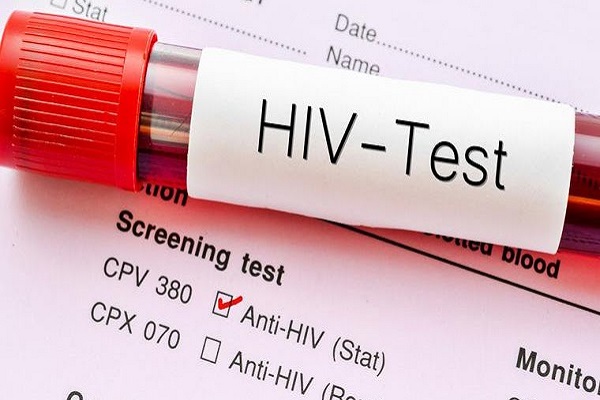
Audio By Carbonatix
Data from the 2023 national and sub-national HIV and AIDS estimates and projections showed 17, 774 people- 6,457 males and 11, 317 females- became newly infected with HIV in that year.
The number comprises 4,869 youth between 15 and 24, 1,698 children under 15, 1,520 adolescents between 10 and 19, and 16,076 adults above 15.
Dr Kyeremeh Atuahene, Director General of the Ghana AIDS Commission who disclosed this in Accra on Wednesday, said that the projection showed a 14.8 per cent decrease in new infections between 2013 and 2023
“The data indicates that Ghana has not been able to achieve its annual target of a 17 per cent reduction in new HIV infections in the last ten year,” he said.
Dr Atuahene said Ghana was expected to achieve a 41 per cent increase in the decrease of new HIV infections between 2023 and 2030.
According to the projections, 334,095 people in Ghana—115,891 males and 218,204 females—were living with HIV in 2023.
Last year, there were 17,550 children under 14, 16,381 adolescents between 10 and 19, 33,245 young adults between 15 and 24, and 316,545 adults aged 15 and up who were living with HIV.
The data showed that the HIV population increased by nine per cent between 2013 and 2023 and was expected to increase by 6.8 per cent by 2030.
Similarly, the projections show that 12,480 Ghanaians died from AIDS related illness in 2023.
Dr. Atuahene said that despite the availability of treatments that prevent the disease's progression and the deaths it causes, mortality due to AIDS continued to occur when it should not.
He said Ghana and the rest of the world are dedicated to reaching the 95-95-95 targets, which set goals such as having 95 per cent of people living with HIV aware of their status, 95 per cent of those receiving antiretroviral therapy (ART) attaining viral suppression, and 95 per cent of those receiving ART knowing their status by 2025.
Dr Atuahene said Ghana achieved 65.3 per cent for the first 95 targets in 2023, 69.4 per cent and 89.0 per cent respectively for the second and third targets.
Most of the people infected or living with HIV in the country are between the ages of 15 and 49, and they are also an economically active population.
He emphasized that stopping the AIDS epidemic in the country should be a key priority for everyone.
Latest Stories
-
Adom FM’s ‘Strictly Highlife’ lights up La Palm with rhythm and nostalgia in unforgettable experience
24 minutes -
Ghana is rising again – Mahama declares
5 hours -
Firefighters subdue blaze at Accra’s Tudu, officials warn of busy fire season ahead
6 hours -
New Year’s Luv FM Family Party in the park ends in grand style at Rattray park
6 hours -
Mahama targets digital schools, universal healthcare, and food self-sufficiency in 2026
6 hours -
Ghana’s global image boosted by our world-acclaimed reset agenda – Mahama
6 hours -
Full text: Mahama’s New Year message to the nation
6 hours -
The foundation is laid; now we accelerate and expand in 2026 – Mahama
7 hours -
There is no NPP, CPP nor NDC Ghana, only one Ghana – Mahama
7 hours -
Eduwatch praises education financing gains but warns delays, teacher gaps could derail reforms
7 hours -
Kusaal Wikimedians take local language online in 14-day digital campaign
8 hours -
Stop interfering in each other’s roles – Bole-Bamboi MP appeals to traditional rulers for peace
8 hours -
Playback: President Mahama addresses the nation in New Year message
8 hours -
Industrial and Commercial Workers’ Union call for strong work ethics, economic participation in 2026 new year message
10 hours -
Crossover Joy: Churches in Ghana welcome 2026 with fire and faith
10 hours

